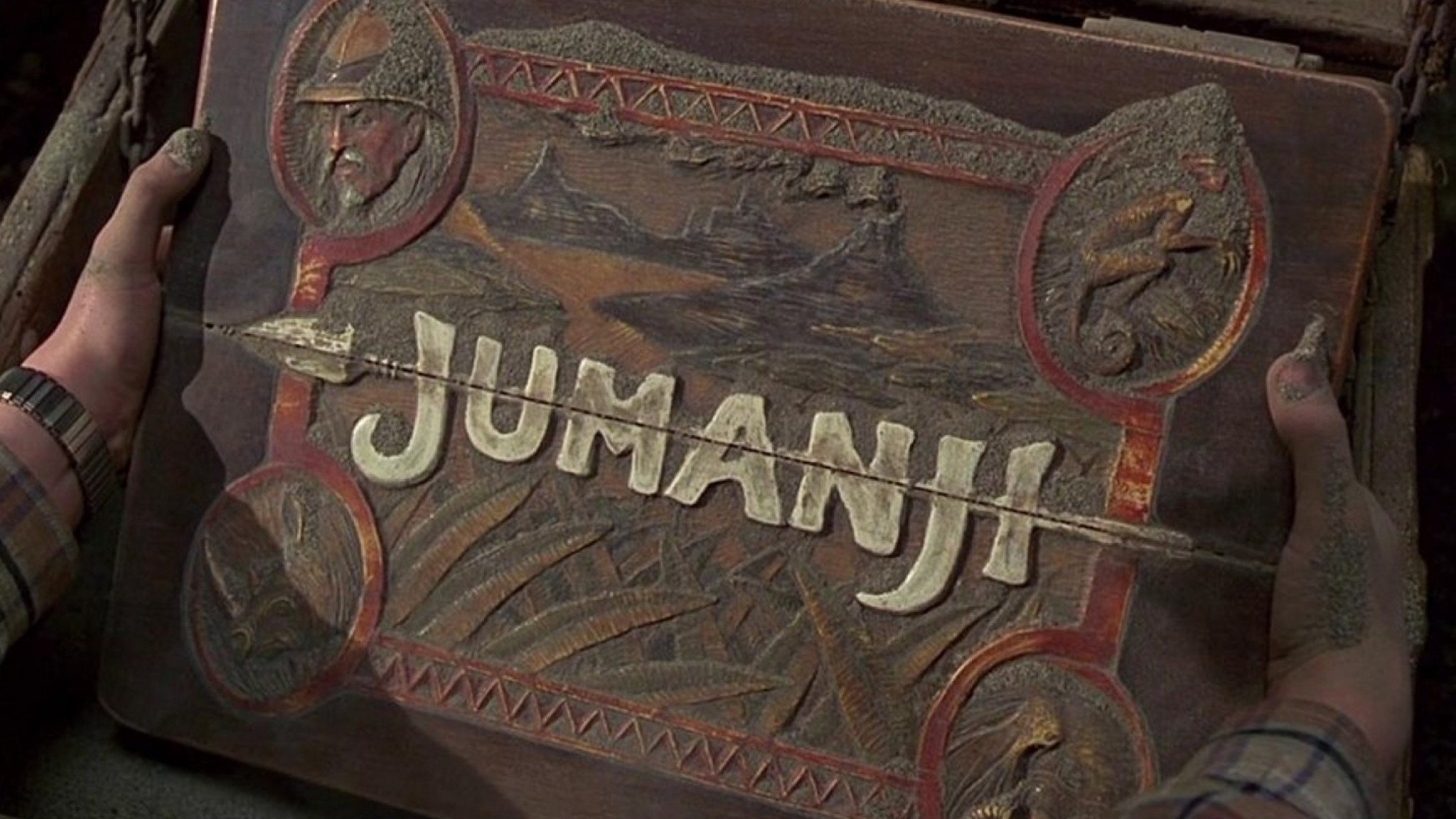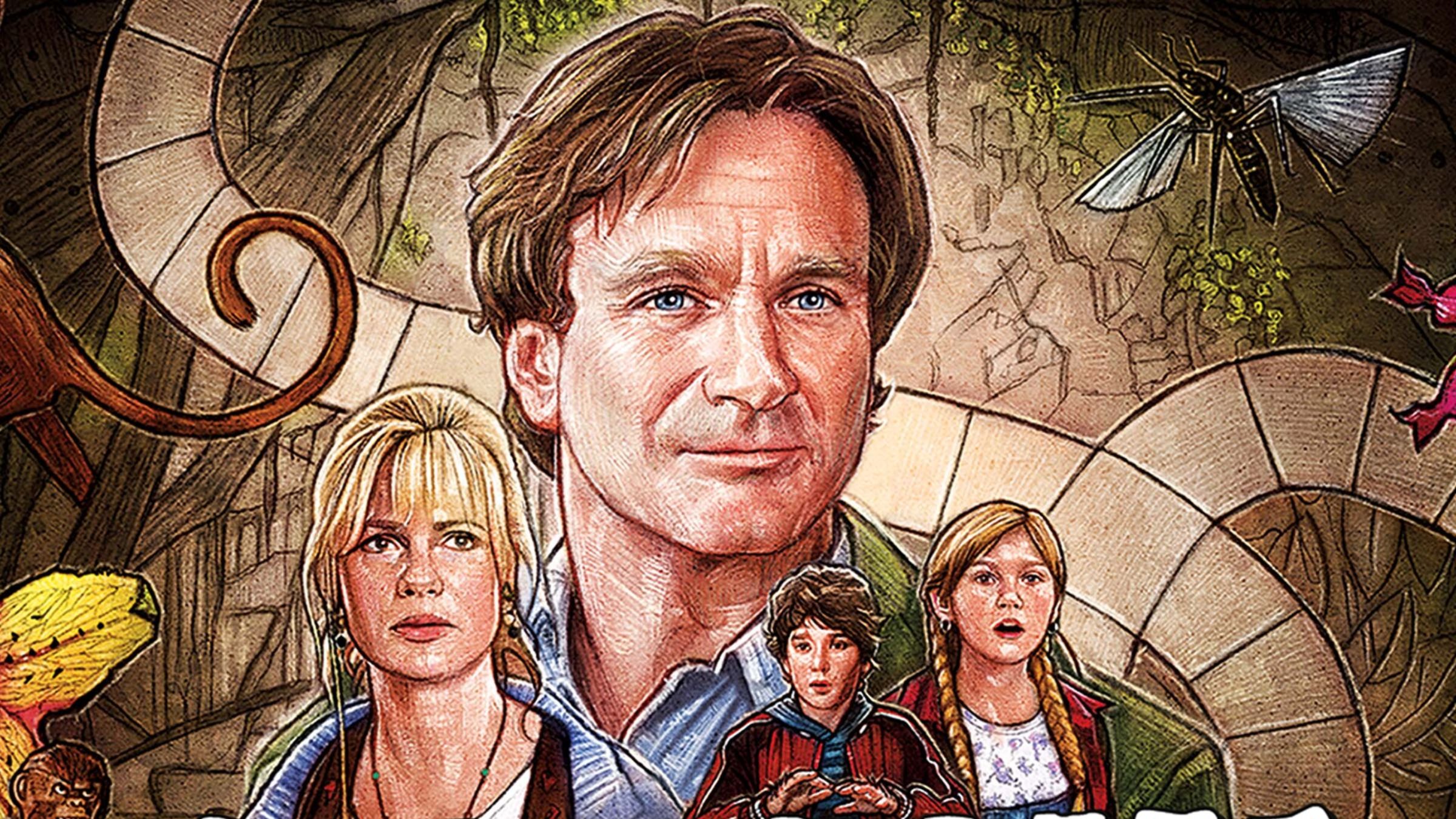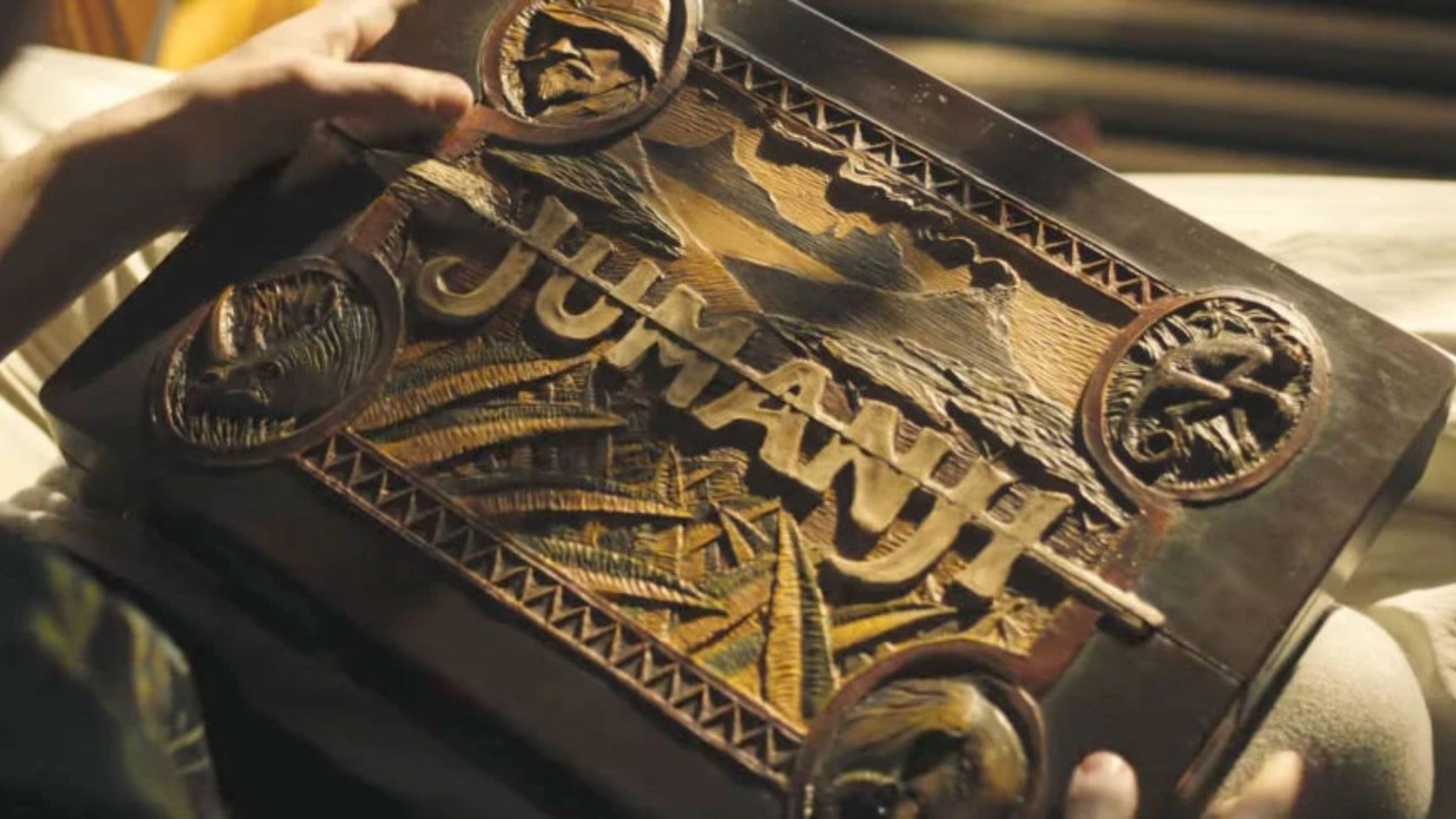
It’s hard to imagine, but the original “Jumanji” film was released a full 30 years back in 1995. This iconic movie featuring Robin Williams introduced audiences to an unparalleled fantasy adventure that would forever change how we view board games and movies alike. The success of this film led to an animated series, and eventually, the franchise returned with fresh characters and challenges. Yet, some fans might wonder why people keep getting drawn into playing Jumanji and what’s behind it all. Fortunately, a fan theory could potentially answer these questions for us.
Originally, the film Jumanji was inspired by a children’s illustrated book written by Chris Van Allsburg. The initial movie featured Robin Williams, Kristen Dunst, and David Alan Grier, among others. However, in 2017, the series made a comeback with Jumanji: Welcome to the Jungle, starring Dwayne Johnson, Jack Black, Kevin Hart, Karen Gillan, Nick Jonas, Bobby Cannavale, and Rhys Darby. The cast is quite unexpected, but it’s even more astonishing that they agreed to reprise their roles for Jumanji: The Next Level. To top it off, a third movie in the series has been officially confirmed.
The High Stakes Game of Jumanji

In essence, when you begin playing the game of Jumanji, it’s essential to see it through until the very end. No matter how much you may desire to stop, you remain trapped within its confines until all dice rolls have been made. This principle was firmly established in the initial movie when Alan found himself entangled within the game for a staggering 26 years before play could resume. Similarly, Alex’s character in Jumanji: Welcome to the Jungle disappears for an equally significant period of 21 years, only for a fresh group to arrive and (unbeknownst to them) aid in completing the game.
It’s possible that some might consider these events as mere coincidences or nods of recognition. However, one Reddit user proposes a unique explanation for all these seemingly random occurrences, an explanation that also sheds light on the game’s mechanics. In their perspective, they draw attention to the striking similarities between the narrative of Jumanji and ancient mythological stories about deities, worship, and covenants. They further support their claim by suggesting that this game is probably fueled by a trickster god from antiquity, compelling players to make sacrifices in its name, even going as far as to call out its name when declaring a winner.
Follow the Instructions to Receive a Reward

As I ponder over this captivating theory, it feels more and more plausible. If indeed ‘Jumanji’ was devised by an ancient deity, it seems logical that they would take every measure to preserve their identity and power. After all, what better way to maintain influence than to ensnare unsuspecting individuals into your realm? In the classic film, a simple board game was enough to lure two distinct groups of children into the game. For the contemporary adaptation, the deity adapted with the times, transforming the game into a video game cartridge – a brilliant modern manifestation of a trickster god’s cunning.
Delving deeper into the concept, when players enter the game, they are subjected to a sequence of tests. Each throw of the die could lead to intense suffering, call for courage, or necessitate a selfless act. This mirrors what one might imagine an ancient deity asking for in exchange for a favor. In every movie, each character embarks on a journey triggered by their dice roll, and each time, it leads to some form of sacrifice from them (even if it’s unintentional or indirect).
Let’s delve into the consequences of deceit, illustrated in the first Jumanji film where the character Peter tried to cheat by advancing his token on the game board prematurely. His intention was to finish the game quickly, but he suffered repercussions for this action. The game retaliated by partially transforming him into a monkey, maintaining his identity but altering his physical appearance – a twist reminiscent of a trickster deity’s intervention in mythology.
High Stakes for Hidden Prizes

This theory becomes even clearer when considering the movie “Jumanji” as a whole. Initially, the rules of Jumanji might appear straightforward and just – however, they are not! This is often a characteristic of a deceptive force. The game’s outcome can manipulate players, sabotaging their chances of winning, condemning some, and causing chaos that’s hard to predict for all participants. Similarly, there are methods to exit the game; but if a player doesn’t finish it (the ritual?), they remain bound by its effects forever.
In conclusion, it’s essential to understand that the game of Jumanji concludes when someone emerges triumphant. This is similar to games like Uno or Bingo where announcing the game’s name indicates victory. Given what we’ve previously examined, it seems quite fitting for a deity with such high demands to also require the victor to shout its name in triumph.
As a captivated film critic, I must admit that this intriguing hypothesis has gripped me like no other. It seems to be well-grounded, almost as if it’s been carefully crafted for a movie sequel. I eagerly await the next chapter in the franchise, hoping it will either reinforce or debunk this theory, leaving us all on the edge of our seats.
You can stream the original movie “Jumanji” on both Hulu and Disney+, but if you’re interested in watching “Jumanji: Welcome to the Jungle”, you’ll find it on Max.
Read More
- PI PREDICTION. PI cryptocurrency
- WCT PREDICTION. WCT cryptocurrency
- Gold Rate Forecast
- Guide: 18 PS5, PS4 Games You Should Buy in PS Store’s Extended Play Sale
- LPT PREDICTION. LPT cryptocurrency
- Elden Ring Nightreign Recluse guide and abilities explained
- Solo Leveling Arise Tawata Kanae Guide
- Despite Bitcoin’s $64K surprise, some major concerns persist
- Chrishell Stause’s Dig at Ex-Husband Justin Hartley Sparks Backlash
- Playmates’ Power Rangers Toyline Teaser Reveals First Lineup of Figures
2025-05-06 01:10